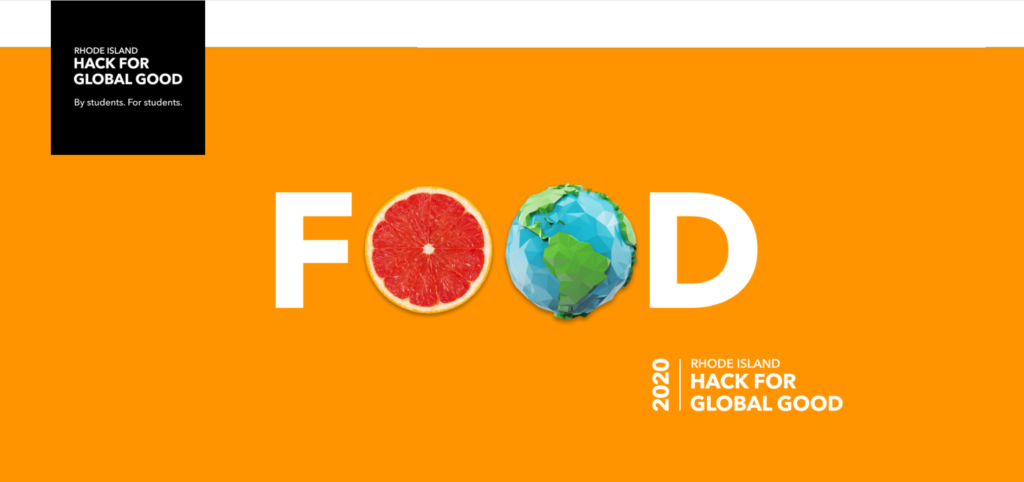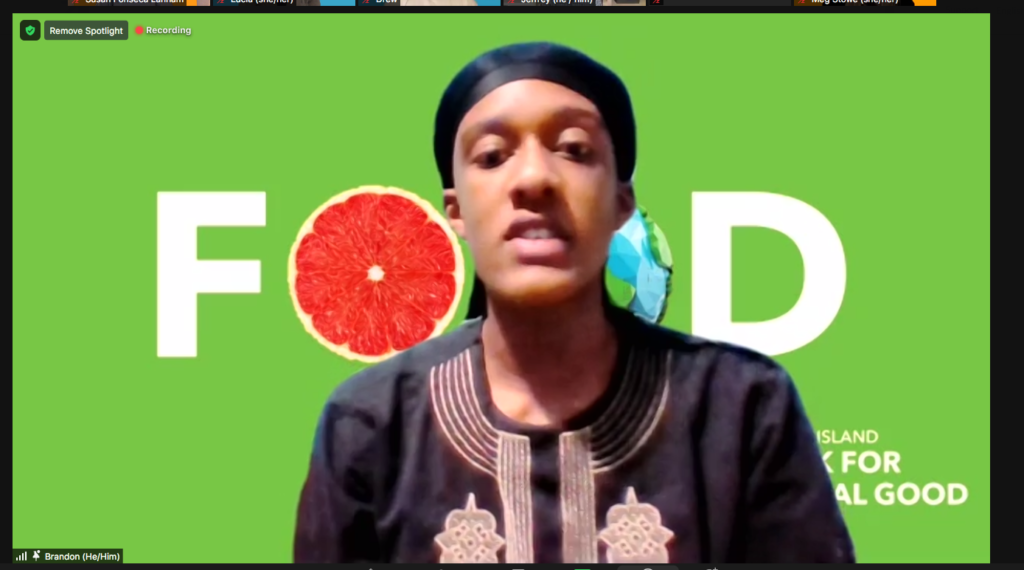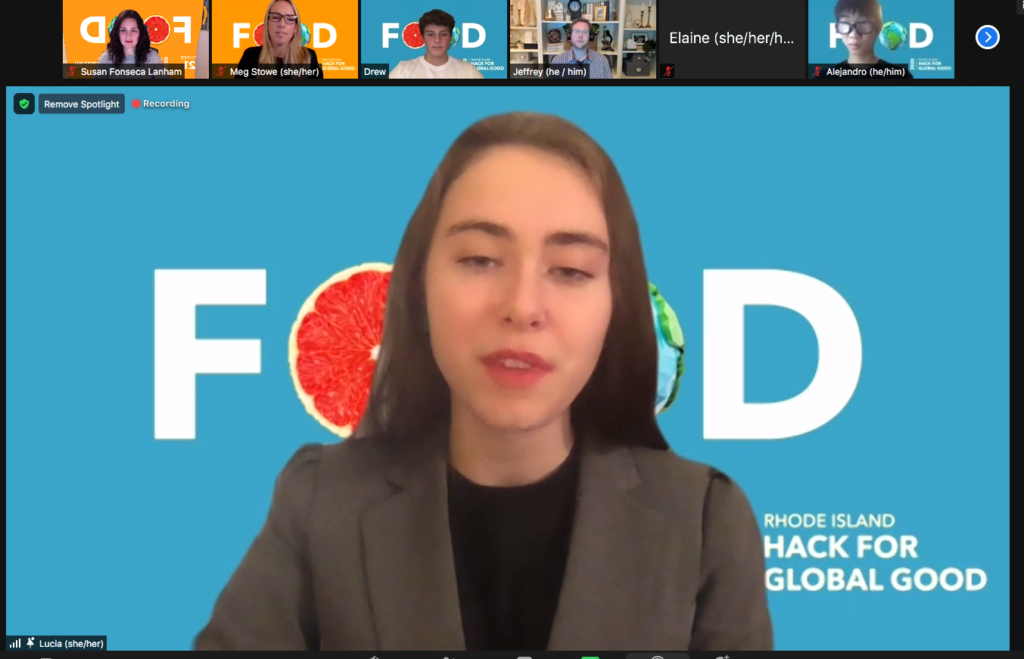
Hack For Global Good, the annual student-led hackathon produced by Rocky Hill Country Day School in East Greenwich, returned for its third year this fall, reimagining what a two-day face-to-face, high-energy event could look like as a fully virtual event. Established by students determined to create real-world solutions to UN Global Challenges, this year’s summit tackled issues surrounding FOOD: People | Production | Policy.
Revised as a two-week, virtual design sprint for the era of social distancing, the event was attended by public and private high school students from across Rhode Island, as well as groups from Malaysia and Russia. Students formed 13 teams, each tasked with exploring three key areas: Food and People, Food Production, and Food Policy.
• People: Farmers, agricultural technologists, vendors, food pantries, growers, and vulnerable populations. Goal: zero-hunger.
• Production: Vertical farming, hydroponic techniques, robotics, GMO, seed saving/genetic ownership, innovative farming techniques, clean food, etc. Goal: zero-waste.
• Policy: Around sustainable food systems, access, transportation, health, affordability, and safety. Goal: food equity.

“The purpose of a hackathon is to offer high school students an experiential learning opportunity focused on citizenship, innovation and entrepreneurship to tackle a real-world problem,” explains Rocky Hill Country Day’s director of innovation, Meg Stowe. “This year, working toward a common vision of zero hunger, zero food waste and food equity for all, students brainstormed bold solutions to a U.N. Global Challenge and ‘pitched’ their novel idea to industry judges.”
In 2017, two students (now alumni), Cortlandt Meyers and Ben Pogacar, wanted to create an experience for students where they could accomplish three simple goals: 1) to work on challenges that matter 2) to bring together students across public and private schools to collaborate with experts in the field and 3) to have fun while learning. According to the students surveyed, 100% of students felt Hack for Global Good accomplished these goals and each of them would recommend the event to a friend.
Hack for Global Good has tackled themes such as Energy in 2018 and Pollution in 2019, with the 2020 theme hitting close to home for many around the globe who experience food insecurity, exacerbated by the COVID-19 pandemic. Leveraging an event app, some participants using one for the first time, students collaborated with experts from many sectors as diverse as design, policy, farming and agriculture, researchers, technologists, and more to tackle this challenge in a self-contained, yet global, virtual environment.

Teams met up virtually within the app, learning to network with mentors, while speakers joined for the live kickoff event and the closing pitch event. Importantly, students led the entire production of this event, as well as managing the technology platforms used (Zoom and Whova), and working in teams under the leadership and guidance of two student event co-chairs, Lucia C. ‘21 and Drew T. ‘22. Student-led sub committees were created to focus on Business Development, Production, Marketing, and Tech/UX (user experience.) Another factor goal of the event is to create an inclusive, accessible, and powerful learning experience for all. In 2020, we introduced our Student Ambassadors Program, with the creation of leadership positions held by students from other schools, this year representing both public school and private schools in other areas of the state.
Among the solutions pitched were new legislation to address food waste at the state level, new venture models leveraging bio-meat to mitigate the effects of climate change due to large-scale animal agriculture, and sustainable fabric production using food waste.
According to Hackathon mentor Arnell Milhouse, founder of CareerDevs and Brown University’s Nelson Center entrepreneur-in-residence: “The fact that 95% of student report that participation in this event has changed their perspective and behaviors related to FOOD, how they will eat, food donation, composting, minimizing food waste, food purchasing, and even what they cook, is remarkable and an indicator of the power of the event and impact theme selection could have on Rhode Island!”
But the real story is the connection between what these young minds are capable of and the innovations that are being brought to life in the real-world. Students generated ideas which leverage creativity, mindful use of technology, and a focus on the impacts of their solutions on the planet. Due to the relevant and open-ended nature of this event (by design), students worked for two weeks (in addition to their schoolwork) to uncover critical academic content, applied what they are learning to their real-lives, and worked well into the night to pitch a viable solution that has never been thought of through their unique lens as the next generation change-makers.
To learn more about Hack For Global Good and to keep on top of updates for next year’s summit, visit hackforglobalgood.org